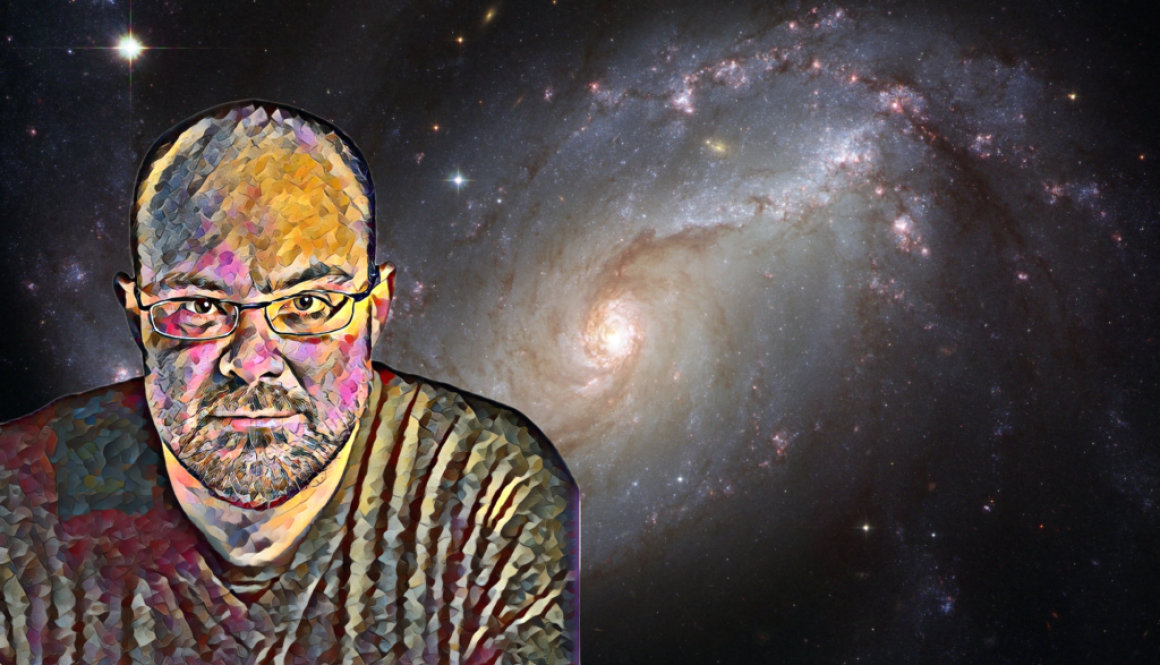The Week’s Damon Linker Says: Don’t Worry, We’re Not Living in a Simulation
In The Week, this week, writer Damon Linker assures us that “life is not a simulation.”
The simulation hypothesis has been a matter of much discussion of late, as you may have read. Human advances in virtual reality as well as in artificial intelligence have raised the possibility that the Universe we know might have been created in a computer, and our own consciousness and (alleged) intelligence might exist within a simulation designed to run scenarios. The multiple crises of 2016 through 2021 added fuel to this particular fire: might the programmers be running a number of multiple scenarios and testing our reaction?
Some mathematicians have in fact calculated that the odds that we live in a simulation are much greater than the likelihood that we are organic.
As Joshua Rothman described the hypothesis in The New Yorker (summarizing arguments made by Oxford’s Nick Bostrom),
thousands or even millions of ancestor simulations could be run by a single computer in the future. If that’s true, then simulated human consciousnesses could vastly outnumber non-simulated ones, in which case we are far more likely to be living inside a simulation right now than to be living outside of one.
Tests have been proposed to determine the nature of our reality, and one frightening counterargument has noted that if we prove our own artificiality, our designers would be inclined to determine that the test is complete, and shut down the program, wiping us out; so let’s not find out.
All of this is serious business, so I was interested in hearing what Linker had to say.
“There is no Big Idea for which I feel greater contempt,” Linker begins, “than the suggestion that we’re all living in a simulation.
“Life,” Linker insists, “is not a simulation.”
Linker, a former speechwriter for Rudy Giuliani, then takes a giant step back from this position, admitting that he “can’t prove our experiences of the world, ourselves, and those around us are in fact real[.]”
So, in other words, life may in fact be a simulation.
As the kids say: “Umm?”
Linker adds that he will “explain why we shouldn’t waste our time imagining it’s all fake.”
Linker walks us through what he claims are philosophical predecessors of the simulation hypothesis, from Plato to Gnosticism, before noting that “it’s hard to imagine this leading to anything other than greater psychic misery” and suggesting that anyone “seriously wondering if life itself might just be a simulation … may have just one path back to a more fulfilling life: Go to church.”
The End.
There are so many problems with this piece.
If Linker had argued that the simulation hypothesis has no effect on our everyday lives, so don’t worry about it, he would have been wrong, but at least one might see his point.
Church can give my life meaning, he might have argued; the ultimate nature of that life is not something that I can really understand or need to worry about, if I am otherwise happy.
This is the What-Does-This-Have-To-Do-With-Me? argument against studying pure- or theoretical-science.
Who cares, after all, if scientists have discovered an Earth-like planet 500 light years from Earth, orbiting a star known as Kepler-186? “I’m not going to vacation there, so I don’t give a damn. Pass the Doritos.”
But Linker isn’t saying that we shouldn’t care if we’re living in a simulation. He’s saying that the simulation hypothesis is in fact false. Although he cannot prove it, and won’t bother trying.
Linker misrepresents the simulation hypothesis as “Dude, what if we’re really just brains floating in vats?” when it’s nothing of the sort.
_______________________________________
ADVERTISEMENT

The simulation hypothesis doesn’t posit that our life is The Matrix, but instead that consciousness and sentience might not necessarily be biological. If that’s the case, then might fully conscious individuals exist solely within a program? And if that is true, how might they live? And what are the odds that, in fact, we “live” in such a program.
In other words, under the simulation hypothesis, our brains aren’t floating anywhere. Our brains are bits and bytes, inside a program that feels “real,” and which, in fact, is “real,” in a way. We are genuinely conscious — and thus we are “real,” we exist, and our lives “matter” — but the simulation hypothesis questions the nature of that consciousness.
Linker isn’t a scientist, doesn’t understand the hypothesis and apparently never bothered to speak with anyone who does.
He dismisses the hypothesis without examining it, sneering in his ignorance. And we learn zero from his article, which supports the idea that dismissing genuine science with contemptuous sarcasm is intellectually acceptable.
The late and great journalist Tom Vinciguerra was a founding editor of The Week; while Vinciguerra was appropriately contemptuous of the things for which he felt contempt, his contempt came from a place of vigor and inquiry, not ignorance.
If Vinciguerra still lived, and still sat at his perch at The Week, Linker’s idiotic screed would never have seen print.
One might have hoped that Vinciguerra’s curiosity might have had an impact at The Week.
Unfortunately, no.
The Week has no time for Vinciguerra’s vigor and inquiry.
As Vinciguerra fades into history, at The Week, the magazine he helped create, scientific ignorance reigns.
^^^
This review was written by Steven S. Drachman. He is the author of Watt O’Hugh and the Innocent Dead, which is available in trade paperback from your favorite local independent bookstore, from Amazon and Barnes and Noble, and on Kindle.
